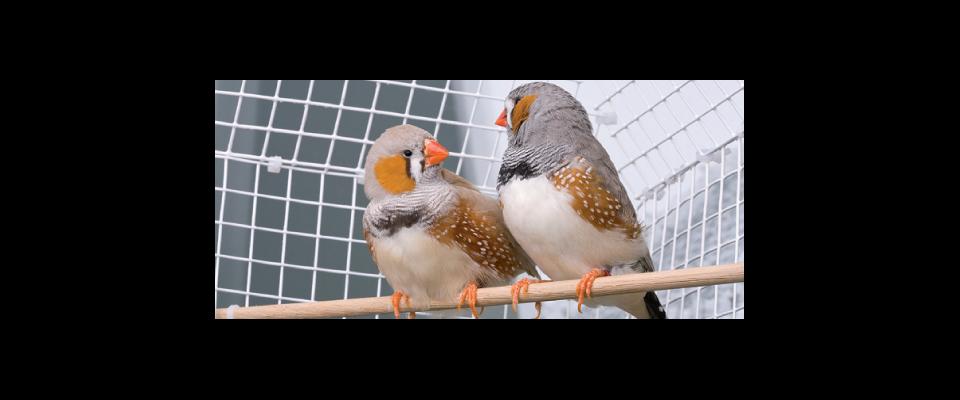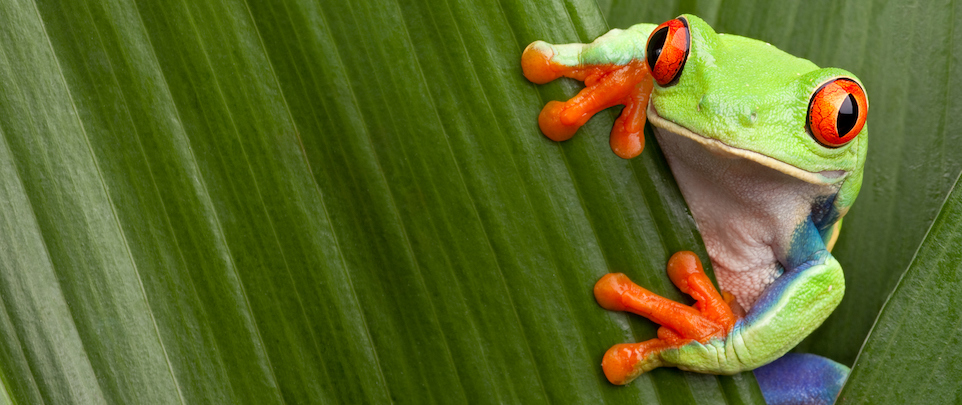When a guy wants a girl’s phone number, he might seek help from a friend, or “wingman,” to keep the conversation flowing and distract her friends, secure in the knowledge that he, too, has the opportunity to flirt.
For the male lance-tailed manakin, a small forest bird of Central and South America, the payoff is less obvious. Alpha males—the dominant birds—choose “beta” male dance partners to help them attract female favor during an elaborate mating ritual in which both male birds “leapfrog” and fly, but only the alpha wins a mate.
So why do the betas do it? Emily DuVal, who studied Panamanian manakins over a four-year period as a Ph.D. student in the Integrative Biology Department, concluded that the betas learn skills that will help them advance socially. “The betas seem to increase their chances of becoming alphas, and having an alpha position is a key part of attracting females,” says DuVal. “The courtship display is long and complex, and it seems that betas may be gaining skills that later help them.”
DuVal’s research lends insight into seemingly unbalanced human male friendships, as well as cooperative relationships among other animals. Wild turkeys, for example, work together in family groups to attract a mate for the alpha male, to extend the genetic line.
A manakin wingman must be patient, able to tolerate celibacy, and willing to hang out exclusively with one other male for the duration of their working relationship, which can last several years. DuVal admits she’s still not sure how candidates are chosen.
“It seems like a good beta would be one who performs the dance well yet is not a threat to the alpha,” she says. “A beta that is too strong, competent, or skilled would be a direct threat to the alpha, and we’ve actually recorded one instance of a beta aggressively overthrowing his alpha. That particular pair had three years of calm cooperation, followed by dramatic fights for a month—then the alpha disappeared, and the beta took over.”
Apparently, even the most loyal wingman has his limits.





















